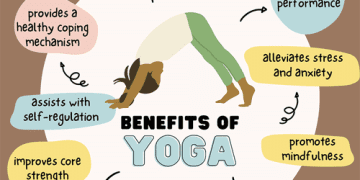
Helping Adolescents Navigate Identity Confusion

I is for Identity and the topic for #BlogchatterA2Z is Helping Adolescents Navigate Identity Confusion. Many physical, emotional, and social changes categorize a vital period of growth. It is a time when teens set out to seek their identity and self-discovery. They are understanding who they are and who they want to become. This changeover course comes with a horde of trials that can deeply influence youth mentally.
An Age of Turbulence and Tension
Firstly, the hormonal changes they go through during adolescence lead to emotional instability. They find it difficult to handle the mood swings. This emotional volatility can affect their self-image and the choices they make.
Mental Influences:
- Depression and Anxiety: Internal and external turmoil results in depression and anxiety which affects their overall wellness.
- Low Self-worth: Fraught with creating a strong identity and facing hurdles can wear down their self-worth and self-confidence.
- Daring Behaviours: Some teenagers get into daring behaviours to declare their identity or manage their inner turmoil.
- Social Withdrawal: Apprehensive of rejection and judgment, they pull out of social interactions, leading to seclusion and loneliness.
- Negative Coping Mechanisms: Some youth may resort to extremes like self-harm or substance abuse to handle stress and emotions.
Support and Mentorship:
Parents, teachers, and society should create a nurturing and tolerant environment to help teenagers through this transformative stage. Open dialogue, mental health mindfulness, and access to therapy reassure youth. These resources help them cross hurdles and encourage positive identity development.
Self-acceptance leads to a gratifying path of self-discovery.
What Are Identity and Role Confusion?
The transition from childhood to adulthood, is confusing and teens feel uncertain about themselves and how they integrate into the social milieu.
One of the key elements is the development of ego identity. It is the conscious self-awareness they develop through social interaction. This is constantly fluctuating because of novel experiences and info they gain in daily interactions with others.
Definition of Identity
“Fundamental organizing principle which develops constantly throughout the lifespan” is how Erikson defines identity
Identity provides:
- Oneness: A sense of steadiness within the self and in communicating with others
- Individuality: A framework to distinguish between self-awareness and connection with others.
- Psychosocial development: Mental and physical or holistic well-being
Role Confusion
Kids who are not permitted to discover and try out diverse characteristics might go through role confusion.
This can lead to
- Uncertain about one’s identity and place in the world
- Oscillating from one job or association to another
- Feel disillusioned and muddled about their role in life
- Other Influences on Identity
The “Big 8” is a social identity theory that includes gender identity, race, culture, sexual orientation, religion, aptitude, socioeconomic status, and nationality.
Advantages of Identity
Commitment
Dealing with the dilemma at this phase of life consists of pledging to a specific identity. This includes choosing a career, social groups, and personal style.
Self-assurance
Adolescents who possess the ability to nurture a robust sense of self are self-confident, accept their abilities, qualities, and judgments.
Sense of Freedom
Teenagers given free rein to explore will build a solid self-identity and feel a sense of autonomy and control. Uncertainty and confusion about oneself and the future arise when there’s a lack of clarity in opinions and aspirations.
Better Mental Health and Relationships
- Teens who have a strong sense of identity have healthier mental health, according to studies. They may have good relationships with their peers and stronger emotional and mental health.
- Researchers have found that adolescents with a strong sense of identity are more successful in subsequent stages of life. These stages include intimacy, generativity, and integrity.
- Thinking about what matters to you helps you understand yourself better. Your core values are the beliefs and principles that are important to you. They guide you and give you motivation when you make choices.
- Discover and cultivate skills in activities that bring you joy. Devoting time to engage in hobbies can contribute to a deeper understanding of oneself.
- Identify your niche in which you excel and devote time to sharpen and escalate those aptitudes. As you commit yourself to enhancing these skills, you may discover other facets of your identity.
- Welcome new opportunities and be receptive to novel encounters. Reflect on your passions and curiosities. Generate a list of potential pursuits that kindle your interest.
- You have the option to establish goals. You can contemplate well-being, vocation, monetary condition, and educational qualifications. By setting goals, you are clear about your aspirations and ambitions significant to your identity.
This post is part of Blogchatter’s CauseAChatter
I am participating in #BlogchatterA2Z
- A- Anxiety Disorders
- B-Bullying-A growing concern for Adolescents
- C- 10 Ways to Cope with Stress for Adolescents
- D-Supporting Adolescents with Depression
- E-Eating Disorders in Adolescents in India
- F- Role of Family in Adolescent Mental Health
- G- Supporting Adolescents in Gender identity
- H-Harmful Substance Abuse in Adolescents









